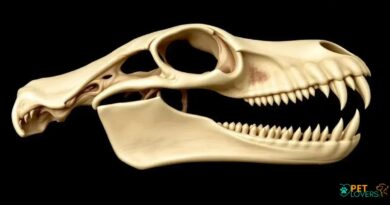What is: Zinc and its effects on dogs
What is Zinc?
Zinc is an essential trace mineral that plays a crucial role in various biological functions in both humans and animals, including dogs. It is vital for immune function, protein synthesis, wound healing, DNA synthesis, and cell division. In dogs, zinc is particularly important for maintaining healthy skin, coat, and overall well-being. A deficiency in zinc can lead to a range of health issues, making it essential for pet owners to understand its significance.
The Importance of Zinc for Dogs
Zinc is necessary for the proper functioning of enzymes that facilitate numerous biochemical reactions in a dog’s body. It contributes to the maintenance of skin integrity and structure, which is vital for preventing skin infections and promoting healing. Additionally, zinc supports the immune system, helping dogs fight off infections and illnesses. A balanced intake of zinc is essential for dogs of all ages, from puppies to seniors.
Sources of Zinc for Dogs
Dogs can obtain zinc from various dietary sources, including meat, fish, eggs, and certain grains. High-quality commercial dog foods are typically formulated to provide adequate levels of zinc, ensuring that dogs receive this essential nutrient. However, pet owners should be cautious about homemade diets, as they may lack sufficient zinc unless properly balanced. Consulting with a veterinarian can help ensure that a dog’s diet meets its nutritional needs.
Zinc Deficiency in Dogs
A deficiency in zinc can lead to several health problems in dogs, including skin lesions, hair loss, and a weakened immune response. Symptoms of zinc deficiency may manifest as dermatitis, particularly around the eyes, mouth, and paws. In severe cases, dogs may experience growth retardation and reproductive issues. It is crucial for pet owners to recognize these signs and seek veterinary advice if they suspect their dog may be zinc deficient.
Excess Zinc and Its Effects
While zinc is essential for dogs, excessive intake can lead to toxicity. Symptoms of zinc toxicity may include vomiting, diarrhea, lethargy, and abdominal pain. In severe cases, it can cause hemolytic anemia, which is a condition where red blood cells are destroyed faster than they can be produced. Pet owners should be aware of the signs of zinc toxicity and ensure that their dogs do not consume excessive amounts of zinc supplements or foods high in zinc.
Recommended Zinc Levels for Dogs
The recommended dietary allowance (RDA) for zinc varies based on a dog’s size, age, and health status. Generally, adult dogs require about 15 mg of zinc per day, while puppies may need slightly more due to their growth and development. It is essential for pet owners to provide a balanced diet that meets these requirements, as both deficiency and excess can lead to health complications.
Supplementing Zinc in a Dog’s Diet
If a dog is diagnosed with a zinc deficiency, a veterinarian may recommend zinc supplements. These supplements should only be given under professional guidance, as improper dosing can lead to toxicity. Additionally, it is crucial to choose high-quality supplements specifically formulated for dogs to ensure safety and efficacy. Regular monitoring and follow-up with a veterinarian can help assess the dog’s zinc levels and overall health.
Signs of Zinc Imbalance in Dogs
Pet owners should be vigilant for signs of zinc imbalance in their dogs, whether it be deficiency or excess. Common symptoms of zinc deficiency include poor coat condition, skin lesions, and increased susceptibility to infections. Conversely, signs of zinc toxicity may include gastrointestinal upset, lethargy, and unusual behavior. Prompt veterinary attention is necessary if any of these symptoms are observed, as early intervention can prevent serious health issues.
Conclusion: The Role of Zinc in Canine Health
Understanding the role of zinc in a dog’s diet is essential for maintaining their health and well-being. By ensuring that dogs receive adequate levels of this vital mineral, pet owners can help prevent deficiencies and promote optimal health. Regular veterinary check-ups and a balanced diet are key components in managing a dog’s nutritional needs, including zinc intake.


